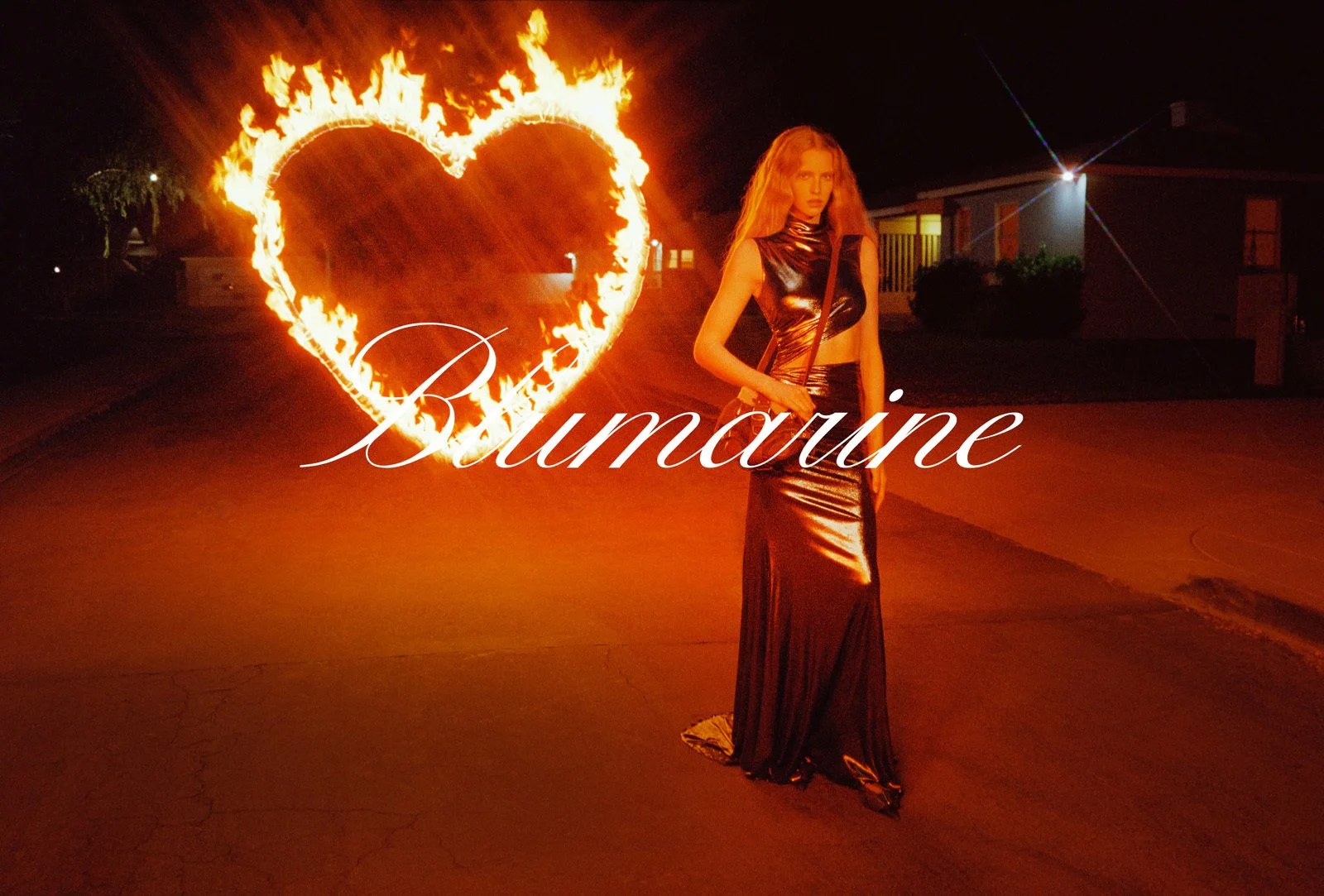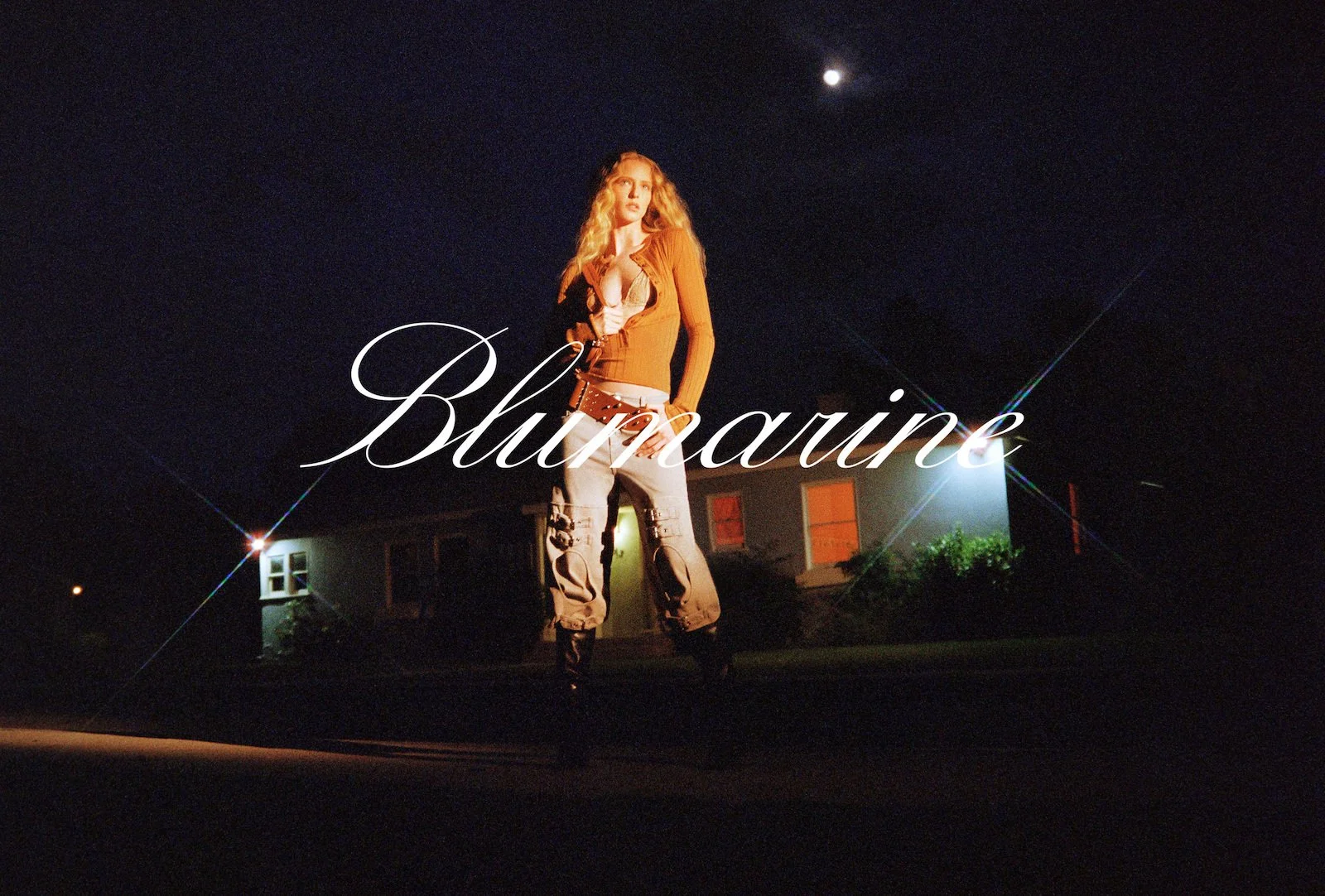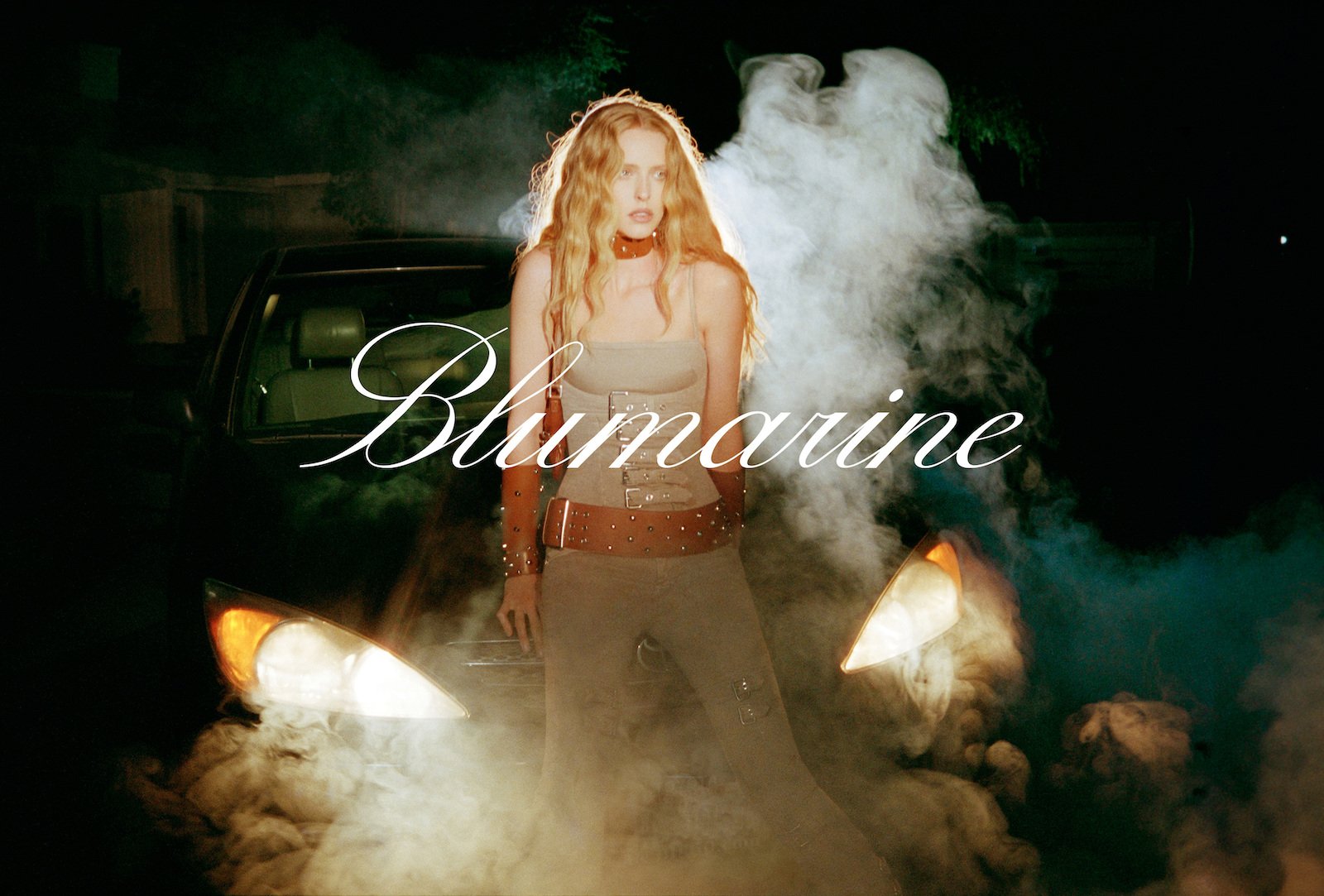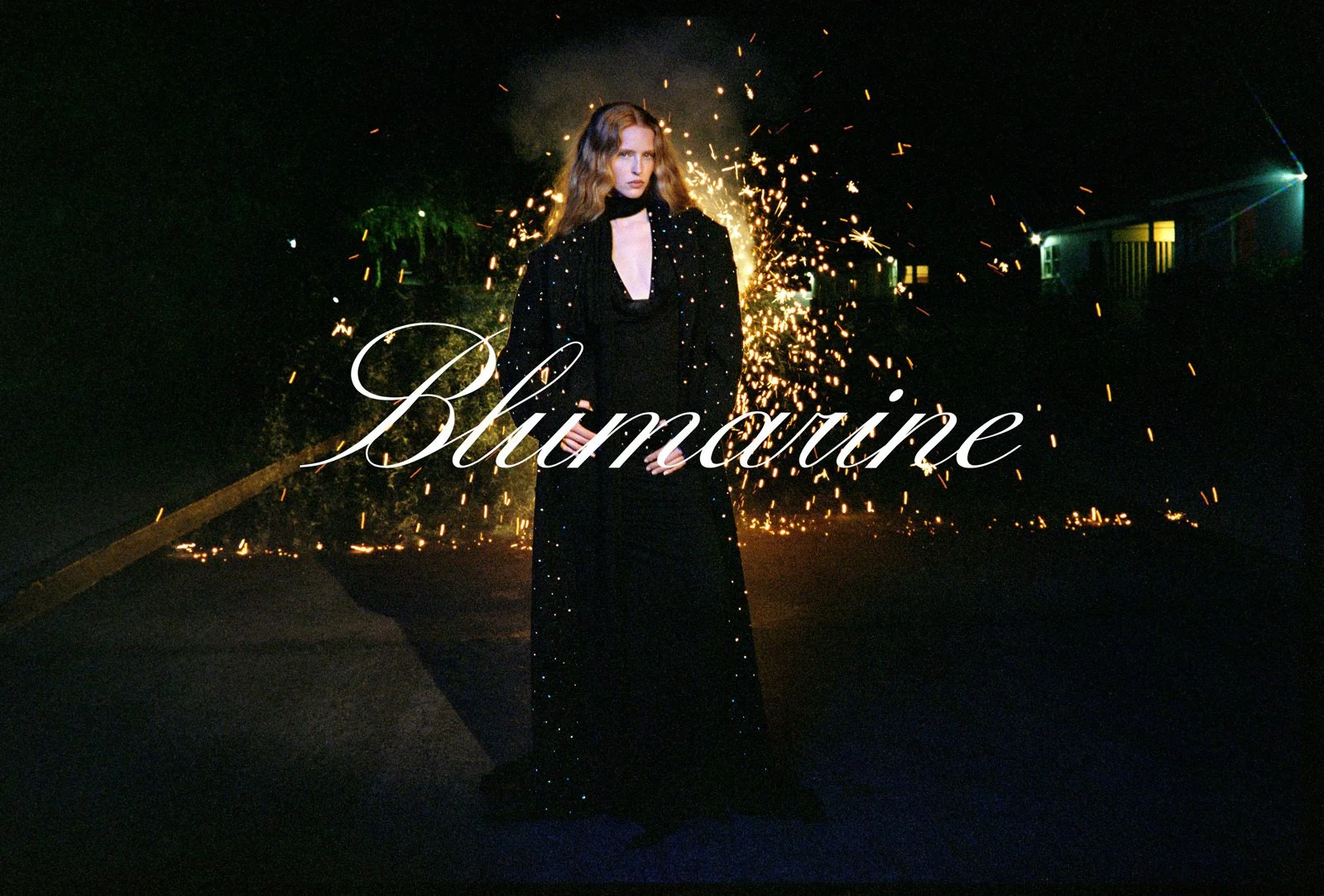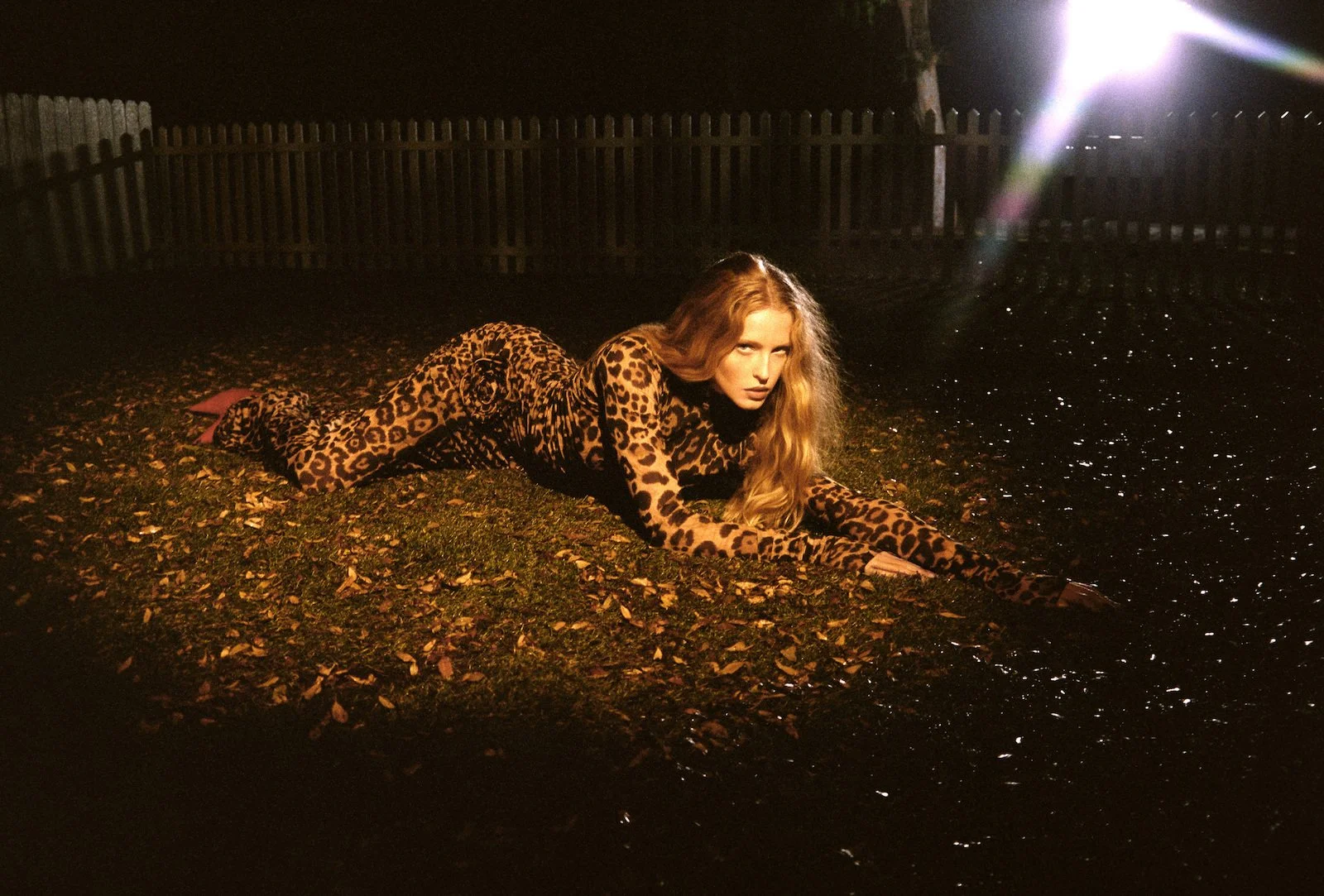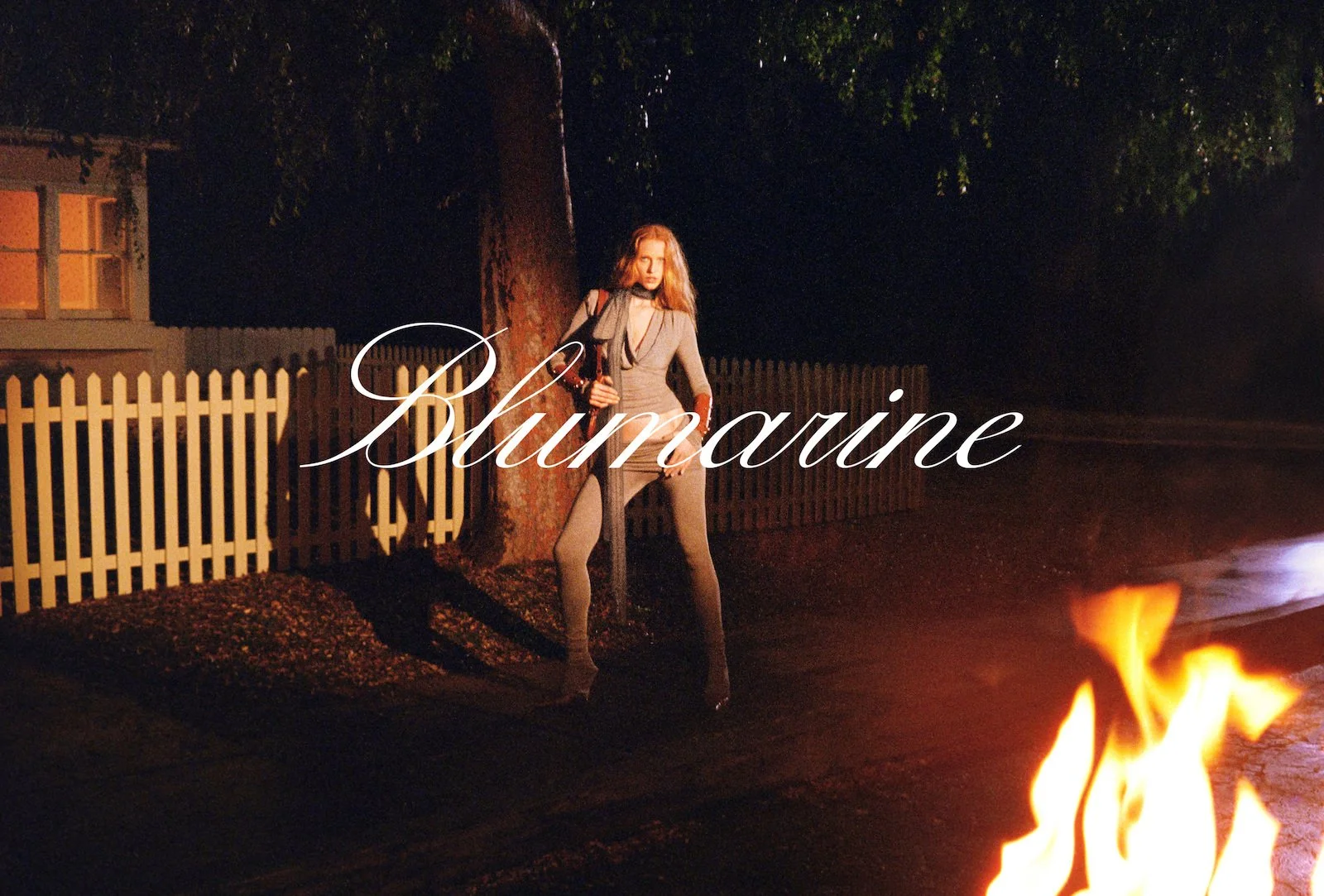Blumarine FW 2023/4 Campaign with Abby Champion Lensed by Petra Collins
/Because model Abby Champion doesn’t have a gamine haircut, you are forgiven for not associating the Blumarine FW 2023/4 campaign with Joan of Arc. In fact, that is where the design season began and the runway show as well, for Blumarine designer Nicola Brognano.
Reeling back the creative impulse further still, the young creator saw a ‘90s image of a young Milla Jovovich with a Joan of Arc close-crop that captured his curiosity. This discovery took him to Luc Besson’s movie ‘The Messenger: The Story of Joan of Arc’, shot in 1999, with Jovovich as the Maid of Orleans, and she who was burned at the stake for her role as a fierce military leader during the Hundred Year’s War.
It’s no exaggeration to say that she saved France from the English by standing by the side of Charles VII of France. Her star fell quite a lot in the ensuing months and she was captured by Burgundian troops loyal to the English, accused of heresy and being demonic, stood trial, was convicted and burned alive.
While I see no way of bringing this story back to Blumarine bonbons, there is a fix. Get photographer/artist Petra Collins [IG]. She’ll understand the need for a new femme in this story. And stylist Lotta Volkova has an uber-creative mind. / Hair by Holli Smith; makeup by Kali Kennedy
Pagan Goddesses and the Fiery Spirit of Liberation
It’s clear to me that someone on Brognano’s team said “Well, what about pagan goddesses? They played around with fire?” Perfect!
As the flames dance and flicker in the Blumarine images, illuminating the night sky, we are reminded of the ancient pagan goddesses who personified the power of fire.
The Hindu goddess Ushas, who embodies the dawn, reveals her fiery spirit as she streaks the sky with hues that rival the brilliance of a blazing pyre. Ushas's fire symbolizes the awakening of new possibilities, inspiring us to embrace change and embark on journeys of self-discovery.
Lulu, that’s promising as the creative energy behind this Blumarine campaign but can you please get me a Roman pagan goddess who liked to play with fire. We must land this plane in Italy.
Unveiling Italy's Pagan Goddess of Fire: Fiammeta
As we delve into the rich tapestry of Italian mythology, we uncover the captivating story of Fiammeta, the long-forgotten goddess of fire. In the ancient annals of Italy's pagan past, Fiammeta emerged as an ethereal deity, revered and celebrated for her dominion over the sacred element of fire.
Perfect, Lulu. Thank you. After watching Abby Champion undulating in the window, Fiammeta is an excellent choice.
Adorned with flickering flames and encompassed by a mystique that still lingers centuries later, Fiammeta embodied the transformative power and primal energy associated with fire. Her influence resonated deeply within the hearts of the ancient Italians, who recognized fire as both a life-giving force and a merciless destroyer.
While the details surrounding Fiammeta's origin remain shrouded in the mists of time, her worship and devotion were intricately linked with the fires of various Italian regions. Each locality, from the volcanic lands of Campania to the rolling hills of Tuscany, held their own unique interpretation of Fiammeta, reflecting the diverse cultures and beliefs that thrived throughout the peninsula.
In Southern Italy, Fiammeta was embraced as the goddess of the sacred hearth, safeguarding homes and ensuring the warmth and sustenance of its inhabitants. Her eternal flame burned with a steady, unwavering intensity, symbolizing the continuity of ancestral ties and the hearth's central role in fostering family unity.
Venturing northward, the Etruscans revered Fiammeta as an enchantress of the glowing embers, harnessing her fiery essence for divination and guidance. The intricacies of her pyromantic rituals involved interpreting the dancing flames, their flickers and patterns unveiling glimpses into the fate and destiny of individuals and communities.
This is more our style, Lulu. And Abby, too.
In central Italy, Fiammeta stood as the guardian of volcanoes, embodying their explosive power and formidable beauty. The inhabitants of these regions recognized her as a temperamental deity, a fierce protector who could unleash both destruction and creation through the molten rivers of lava that flowed from these fiery behemoths.
While the Roman Empire eventually supplanted much of Italy's indigenous beliefs with their own pantheon of gods and goddesses, Fiammeta's essence continued to permeate the collective consciousness.
From Goddesses to Witches and Headed for Hell
That is until the Christians arrived, and rather than being fiercely brilliant pagan women goddesses controlling fire and creativity and new beginnings, we found ourselves labeled witches and demonic creatures, and being burned alive far, far more often than men.
After all, women were more likely to be free-thinkers. Recall Eve eating the apple of the tree of knowledge and getting all of humanity thrown out of the Garden of Eden. It was all downhill for pagan goddesses after the patriarchal Christians took over Italy.
There, Lulu, we’ve made perfect sense of Blumarine’s fiery Fall/Winter 2023/4 campaign inspired by Joan of Arc but in real life blessed with Abby Champion, she of long and flowing hair. High five! ~ Anne and Lulu
PS: Regarding Petra Collins, I rest my case.
